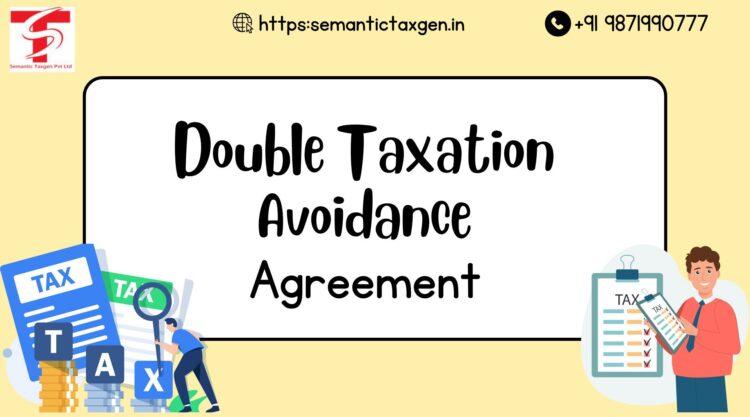
Double Taxation Avoidance Agreements is an agreement which is negotiated between two countries eliminates international double taxation and encourage flow of goods, services and investment of capital between the two countries.
This means that there exist agreed upon taxes and authority on specified types of incomes which originate in one country to a tax resident of another nation. The taxpayers in these 88 countries can avoid the condition where they will be taxed both domestically and internationally for the same income.
The matter that logically connects to the taxation of income transcending the borders of a particular country is the problem of double taxation. DTAA can either be comprehensive, applying to all forms of income, or limited to one or the other depending on the business activities/household assets of citizens of one country in the other. The following categories are covered under the Double Taxation Avoidance Agreements (DTAA):
Mrs. Shubhanshi is an Indian resident who earns INR 5500 and will be taxed in India as foreign income and also in the USA as non-resident income. If the tax rate in India and the USA are 30% each is it means effective tax paid on the income will be 60% the so she needs to pay 3300 tax (5500*60%) and balancing 2200 amounts is the net income after taxes.
This means dual taxation is a loss for the investor. Because of this reason, DTAA comes into the picture and this provision promotes international trade. We need to pay tax only once.
Section 90 and 91 of the Income Tax Act 1961 gives special exemption to the taxpayers to avoid tax amount being charged twice. Sub-section 90 relates to such provisions where the taxpayer has paid Tax to another country with which India has a DTAA. It is applied to such countries with which there is no DTAA between India and the latter. Therefore, it can be concluded that India grants relief to both categories of taxpayers.
Some of the major benefits of Double Taxation Avoidance Agreements (DTAA) are mentioned below:
India has DTAA with 88 countries to avoid dual taxation on foreign income. Thus Foreign companies resident in countries which have DTAA with India can avail more advantageous provisions and rates between the provision of IT act and the DTAA. Earlier the Hon’ble Government of the Republic of India and the Hon’ble Government of the People’s Republic of China also entered into the Double Taxation Avoidance Agreement (DTAA) on 26/11/2018. This agreement was signed for affording relief regarding the double taxation as well as for counteraction the fiscal evasion in relation to taxes on income.
The following are the steps to determine how to apply DTAA:
The benefit of DTAA can be claimed by three methods:
Under the Double Tax Avoidance Agreement, NRIs don’t have to pay tax twice on the following income earned:
If income from these sources is a subject of tax in the country of residence of the NRI, he can avoid dual taxation by availing the dual taxation avoidance agreement.
Learn More About CSR and How It Benefits Society: https://semantictaxgen.in/csr-rules-csr-and-permissible-activities/
To Receive or Inquire about the NGO Taxation services check out our website: https://ngopilot.in/
DISCLAIMER: The information provided in this article is intended for general informational purposes only and is based on the latest guidelines and regulations. While we strive to ensure the accuracy and completeness of the information, it may not reflect the most current legal or regulatory changes. Taxpayers are advised to consult with a qualified tax professional or you may contact to our tax advisor team through call +91-9871990777 or info@semantictaxgen.in the appropriate government authority to verify the accuracy of the information and to obtain advice on their specific tax situations.
© 2013-25 Semantic Taxgen Pvt Ltd - All Rights Reserved